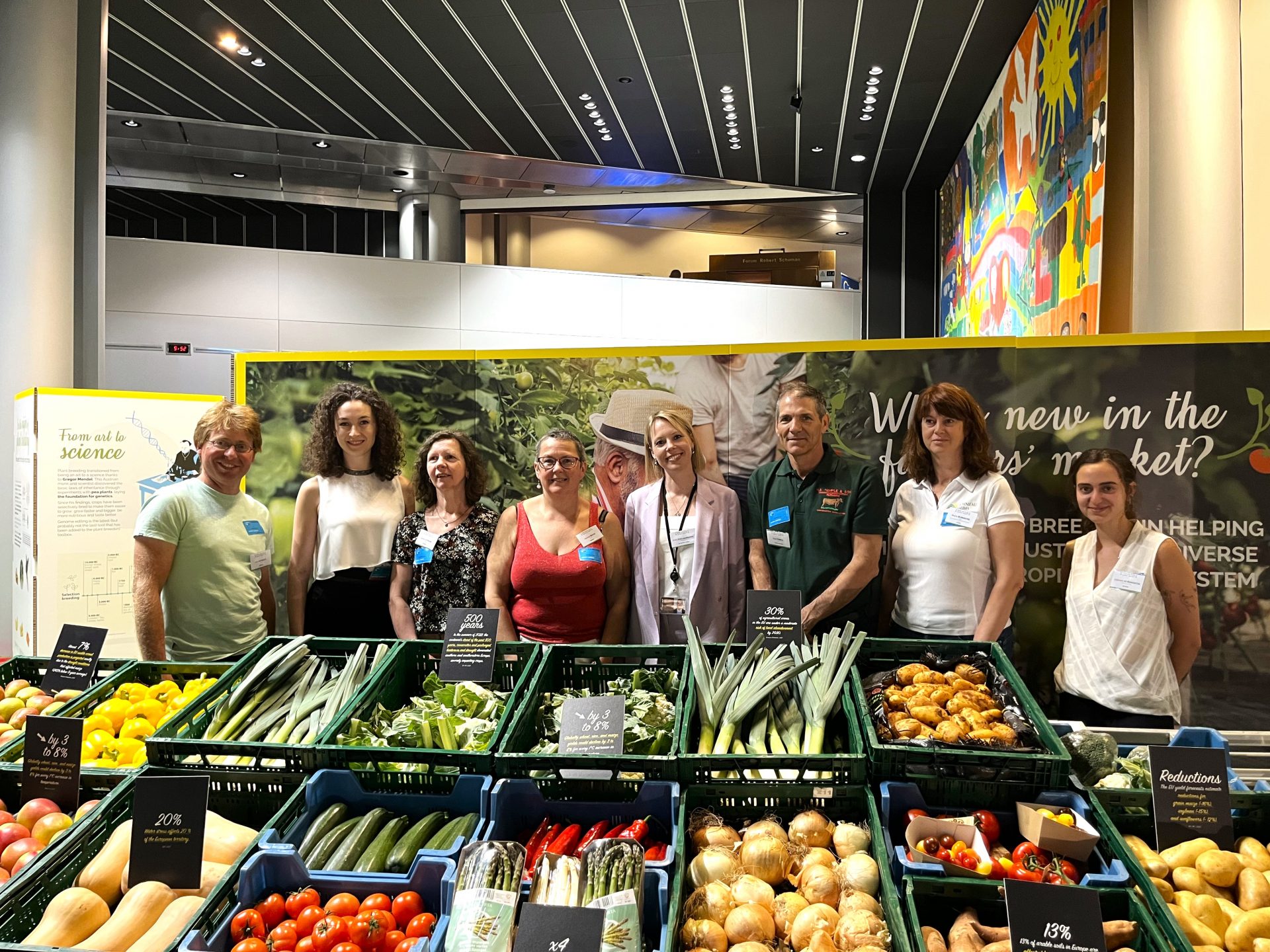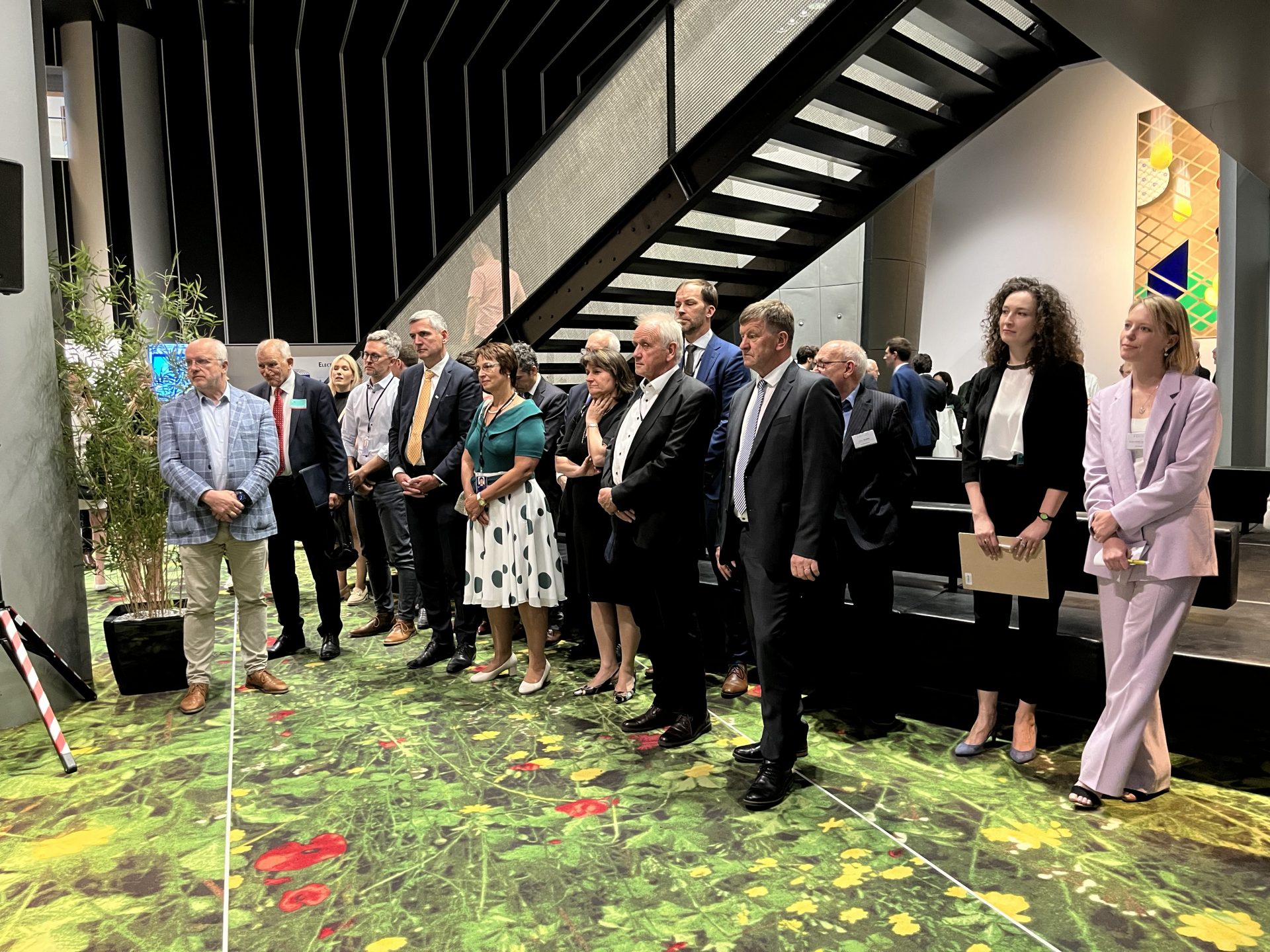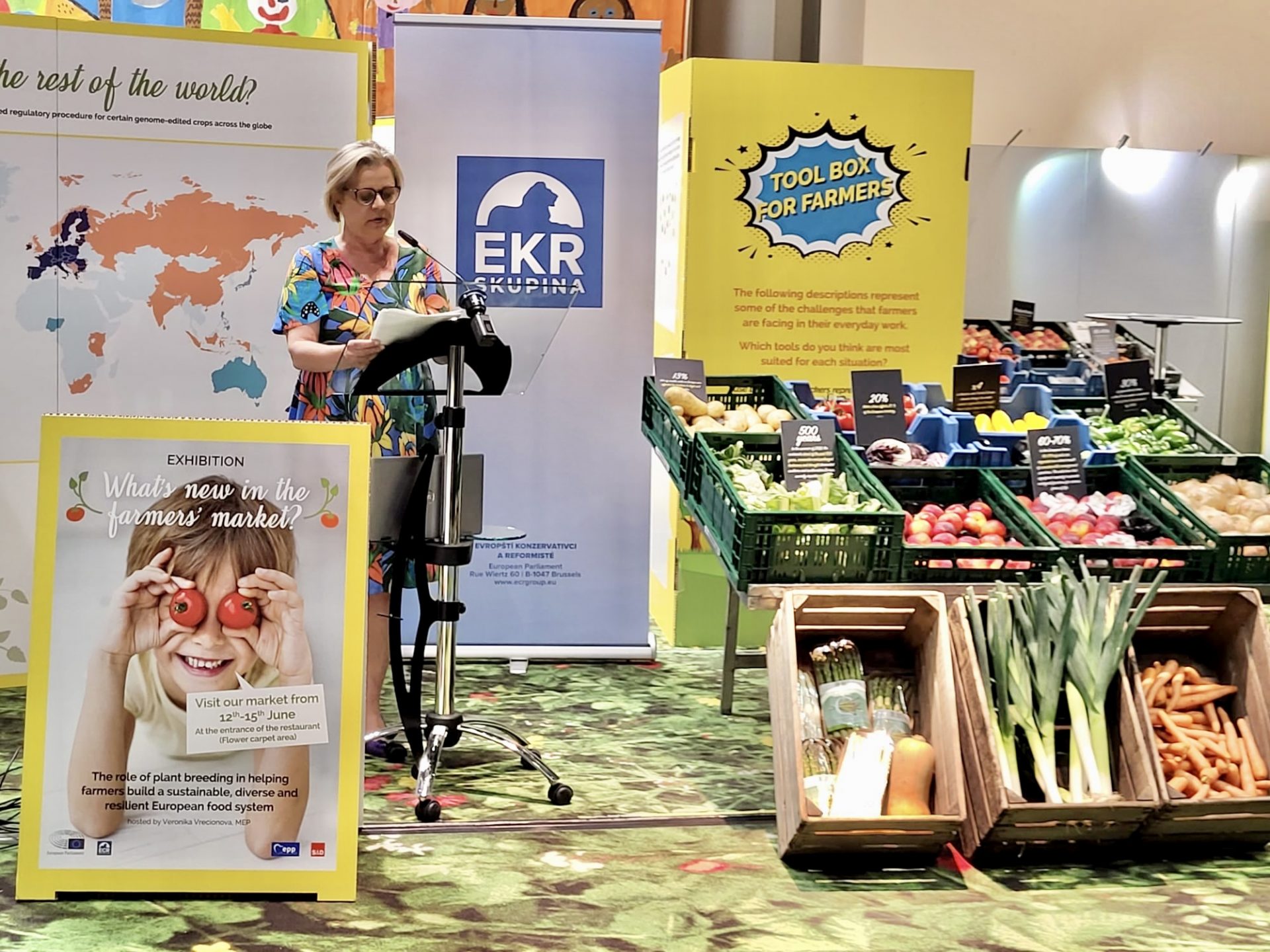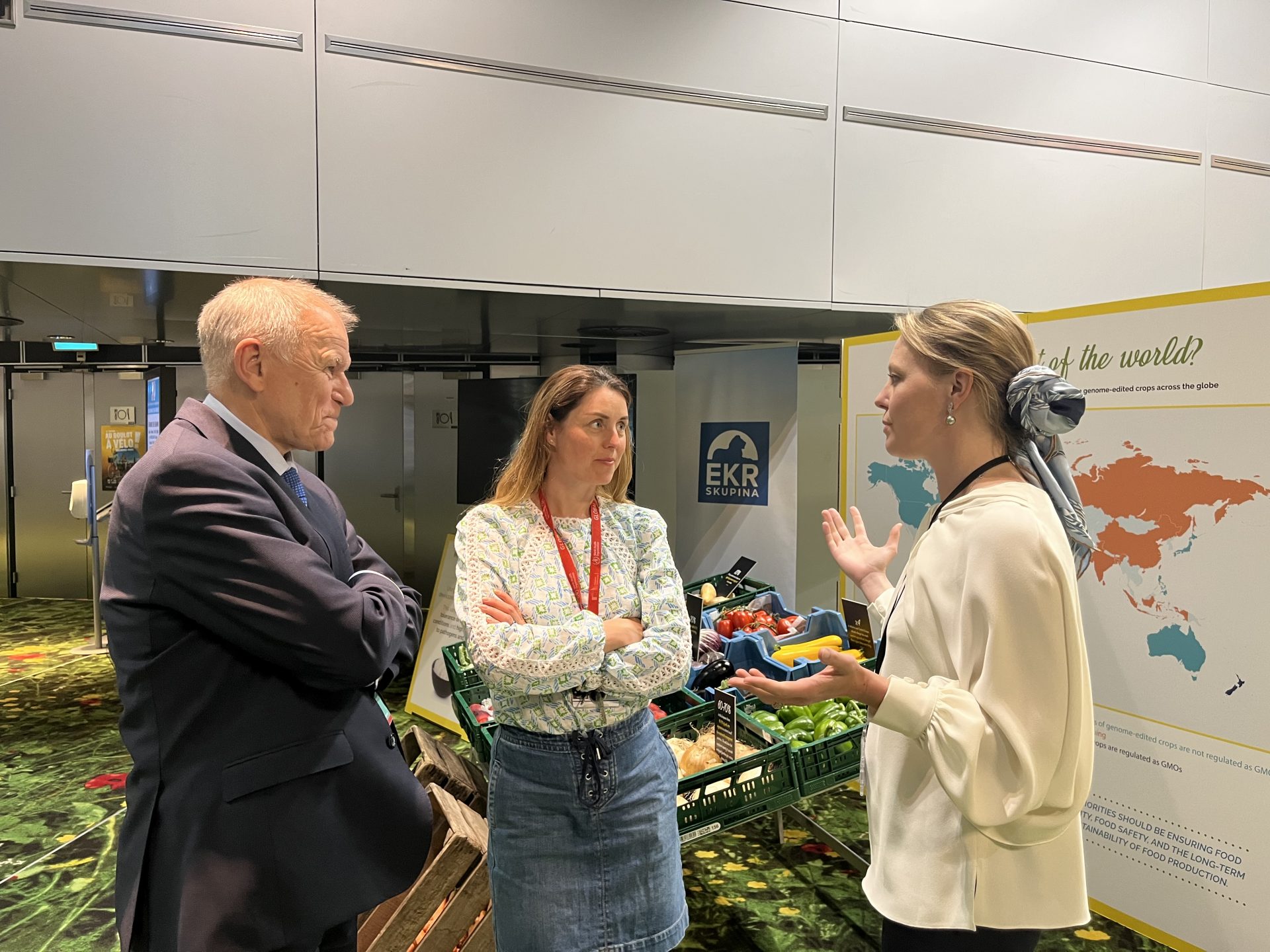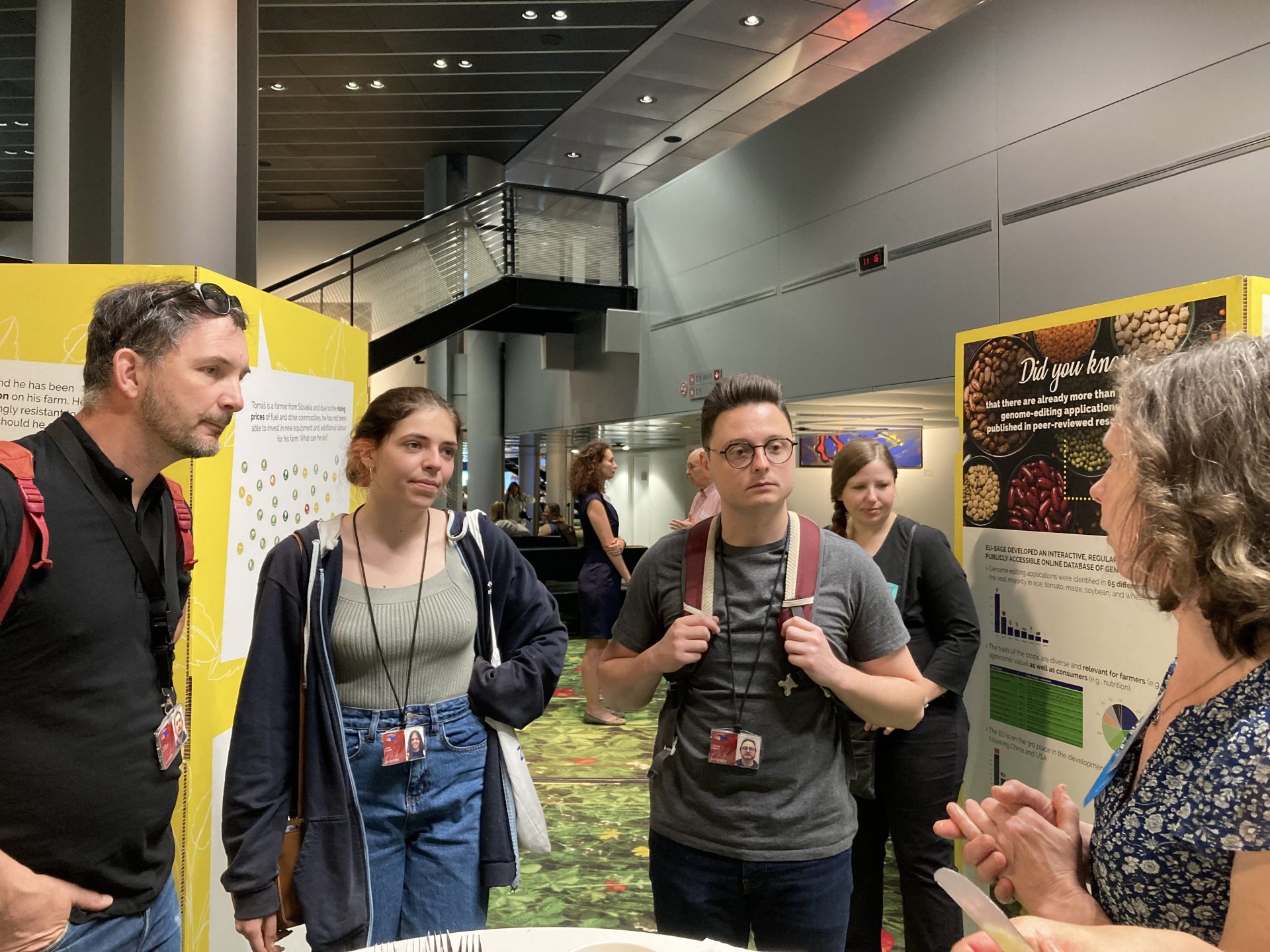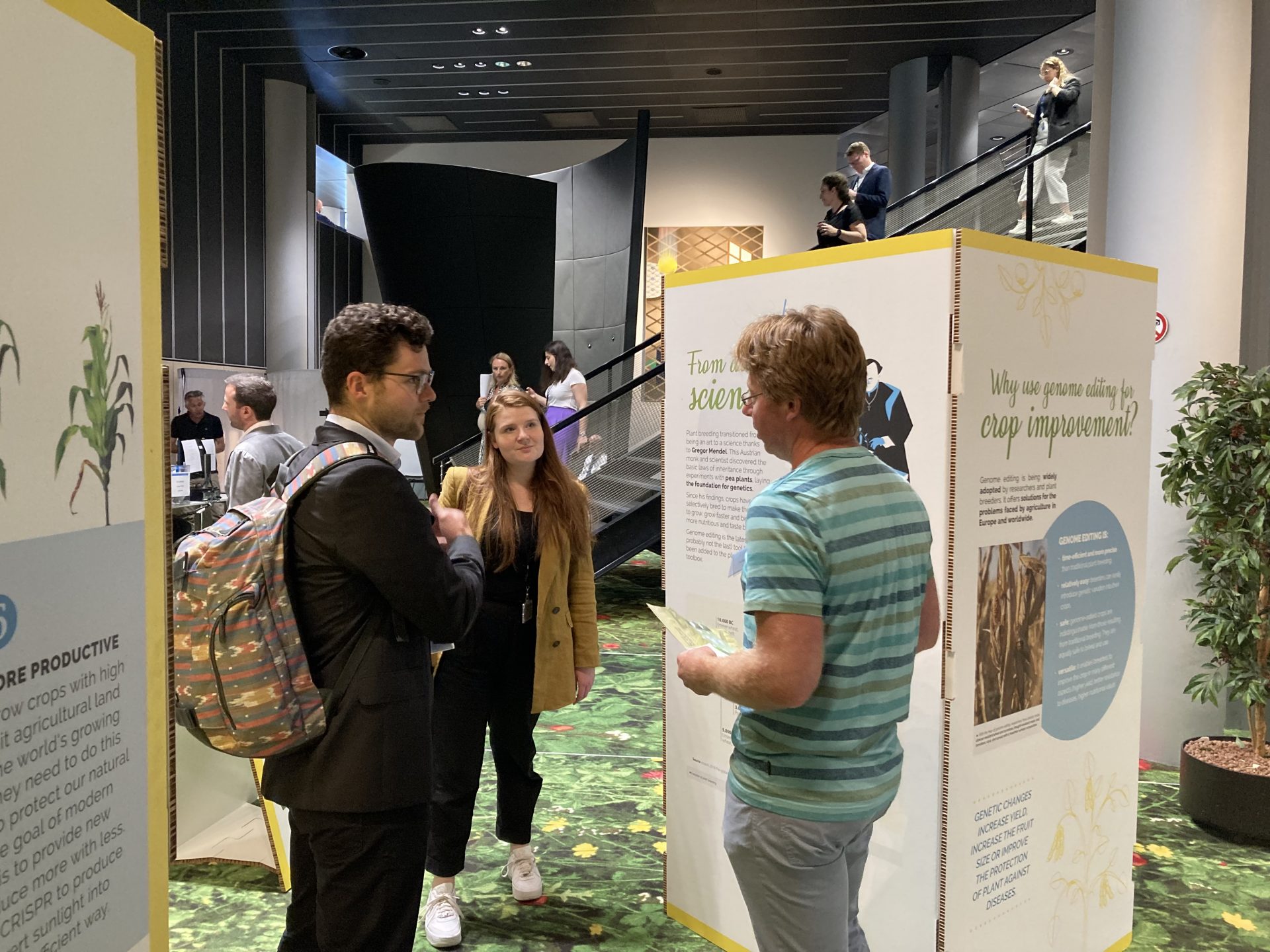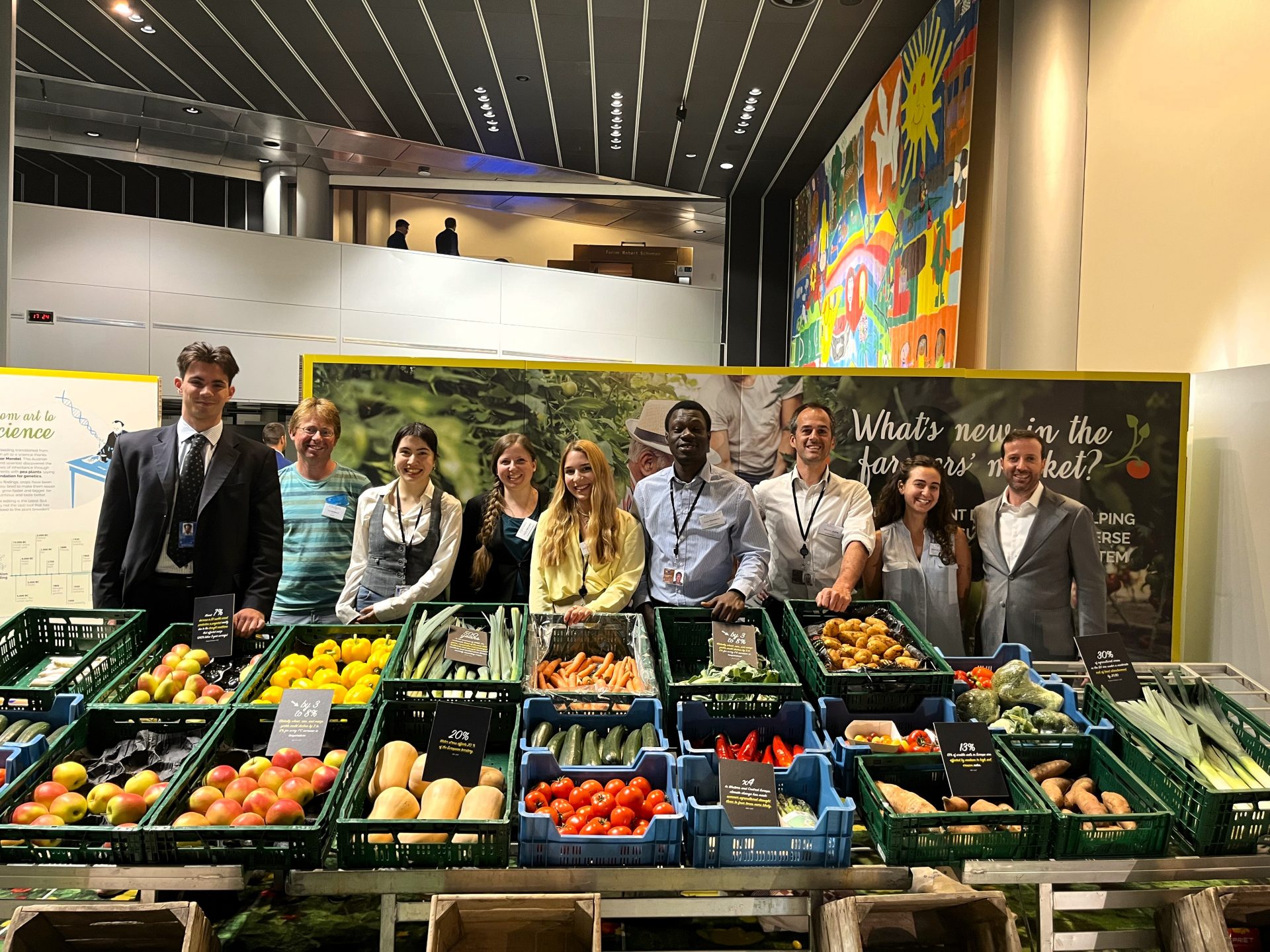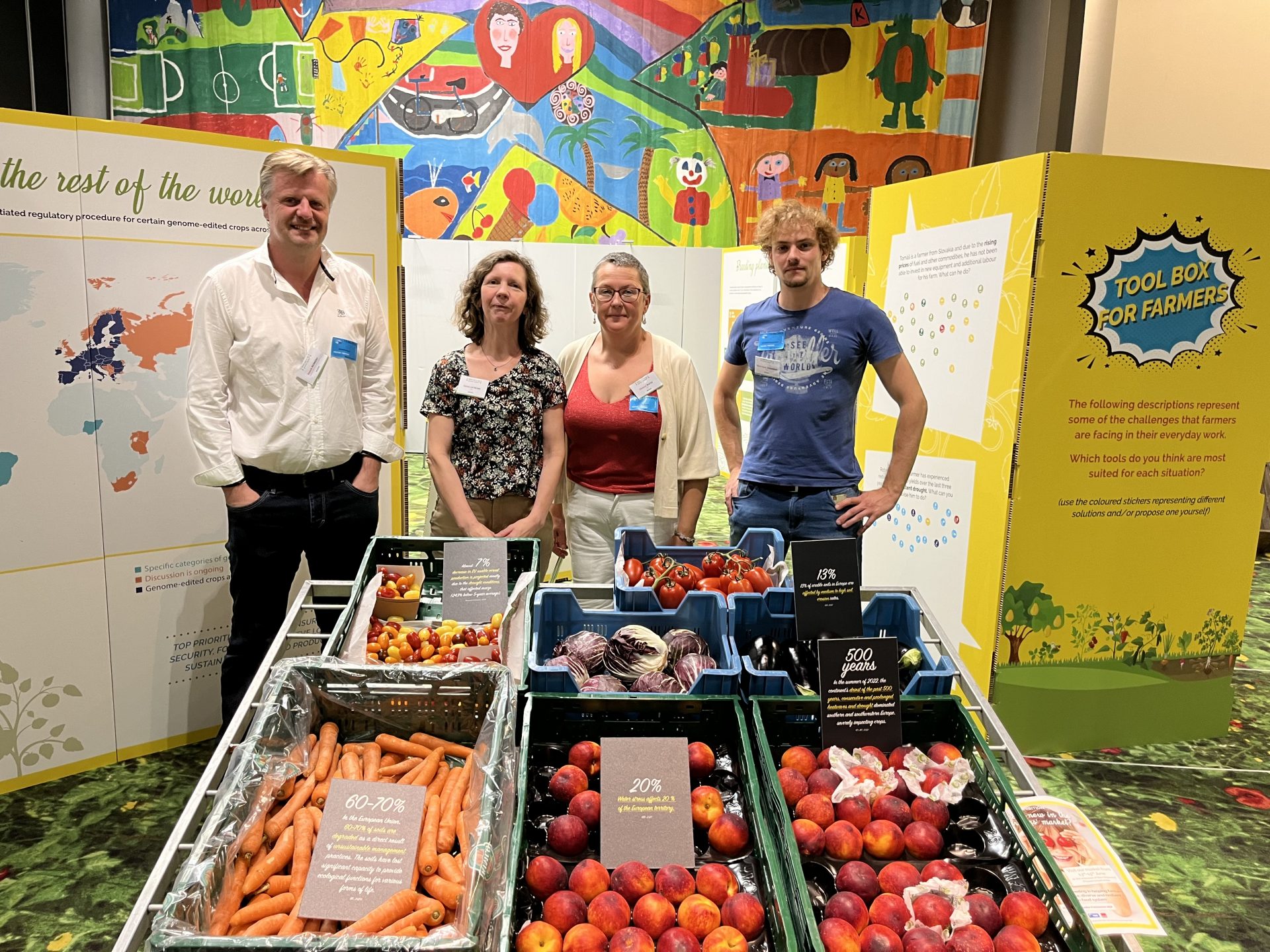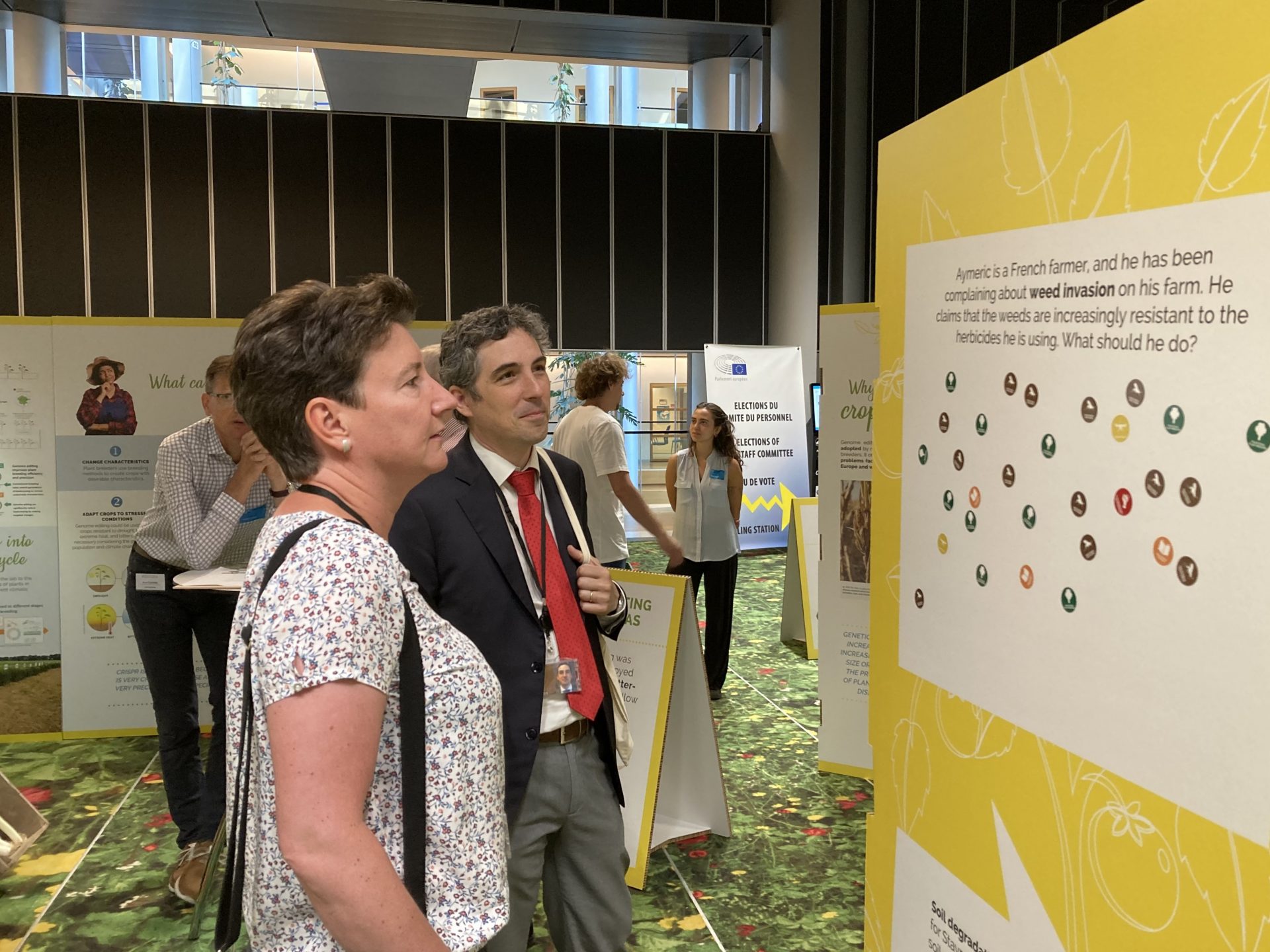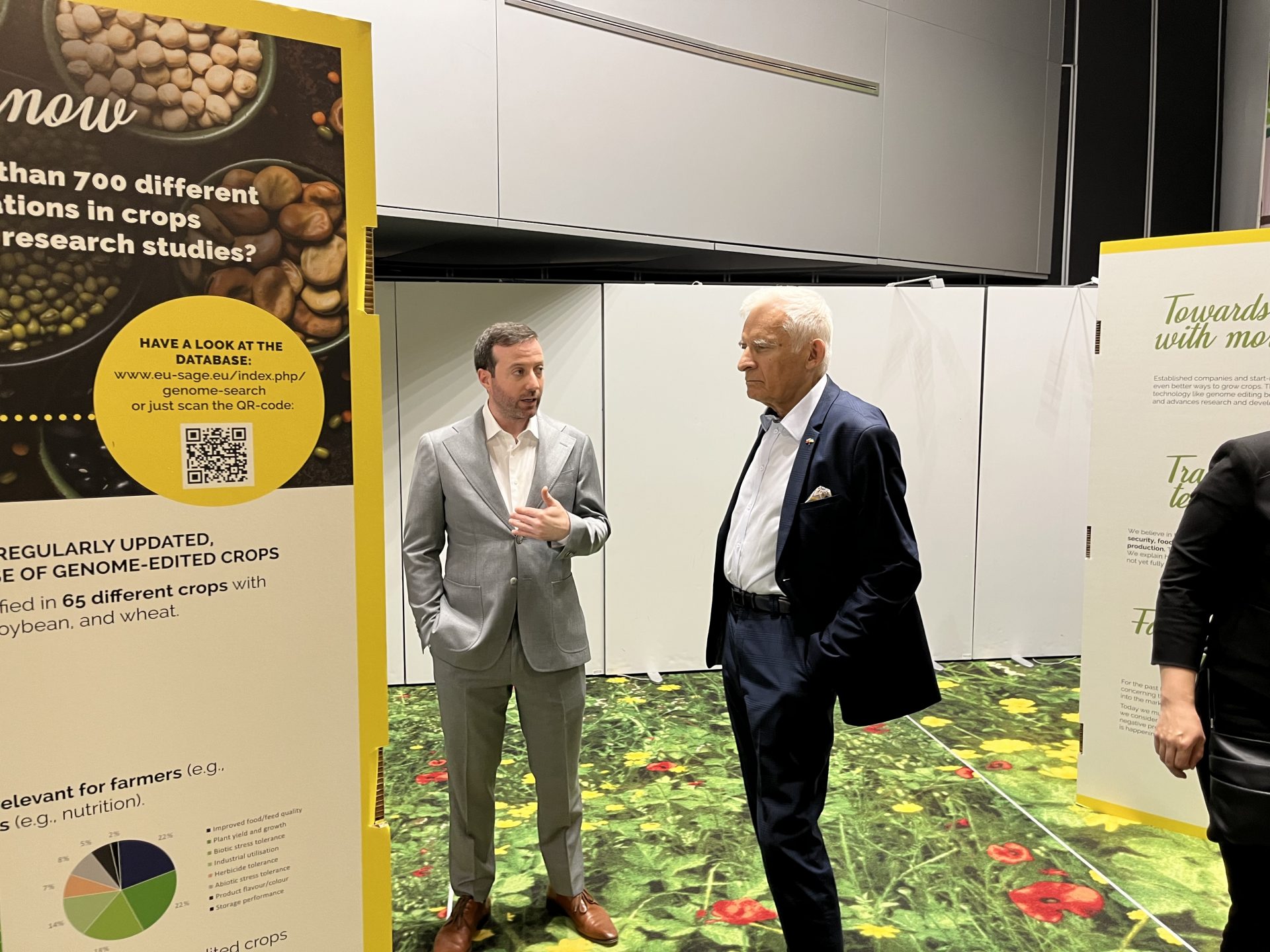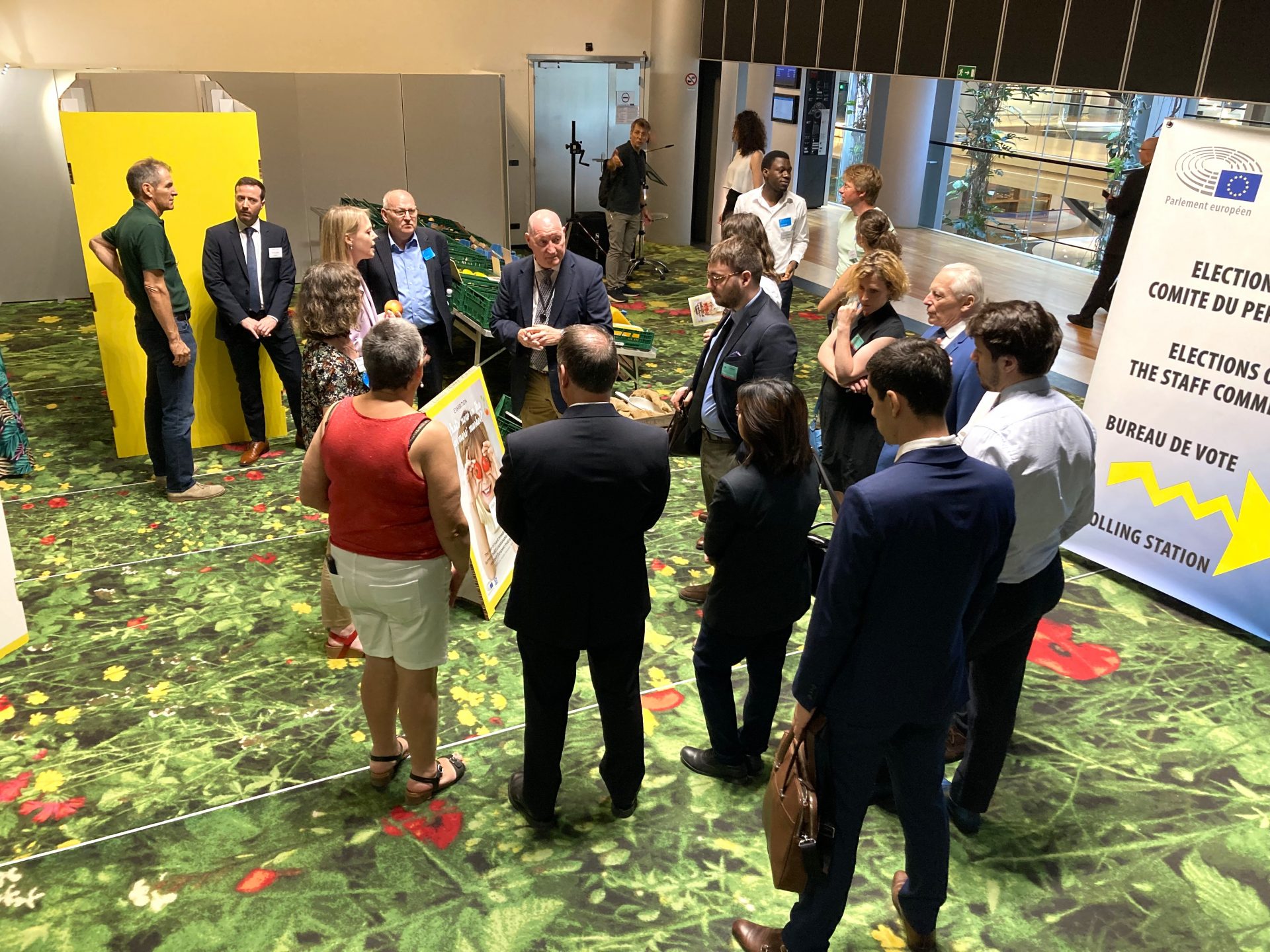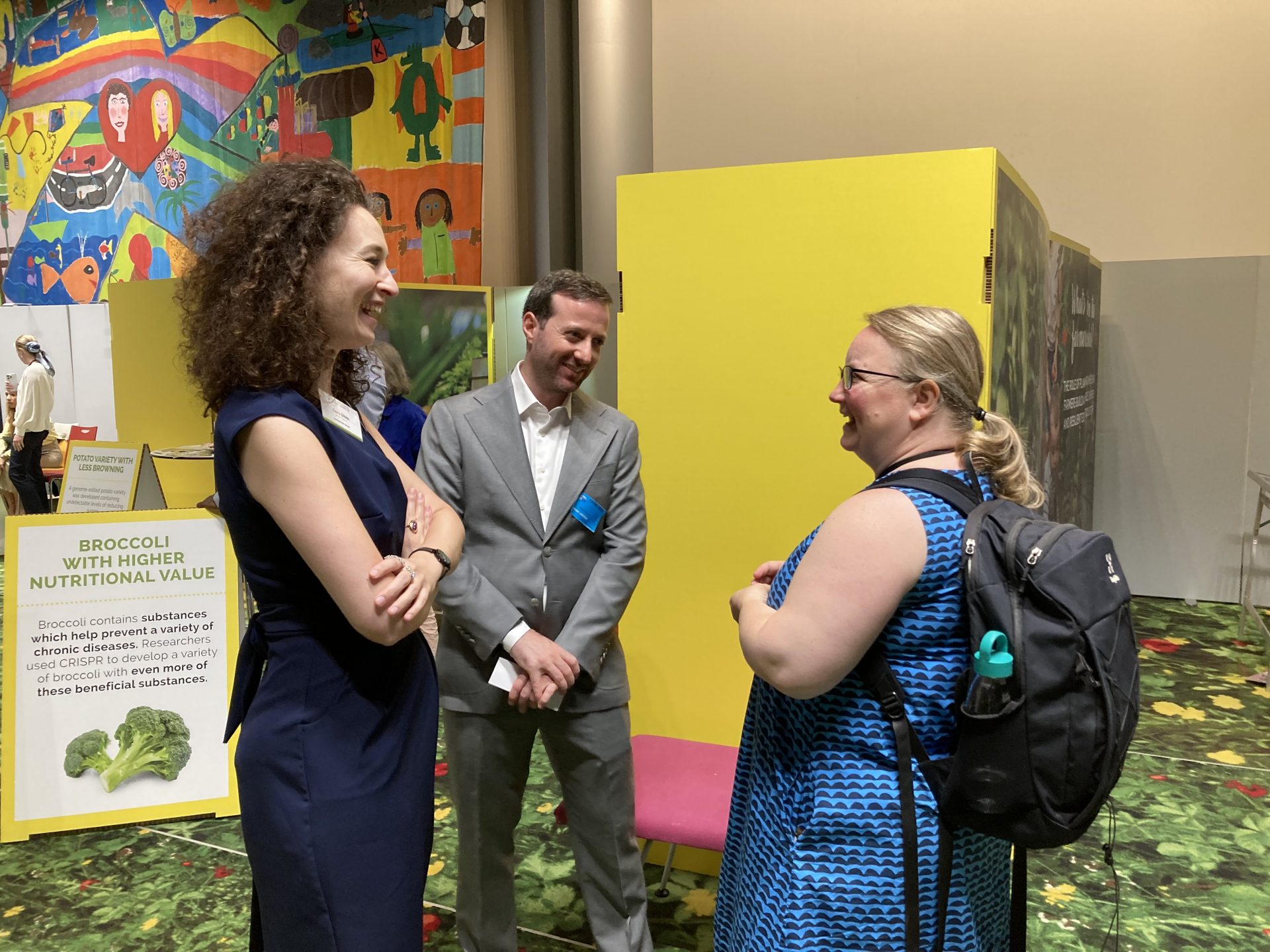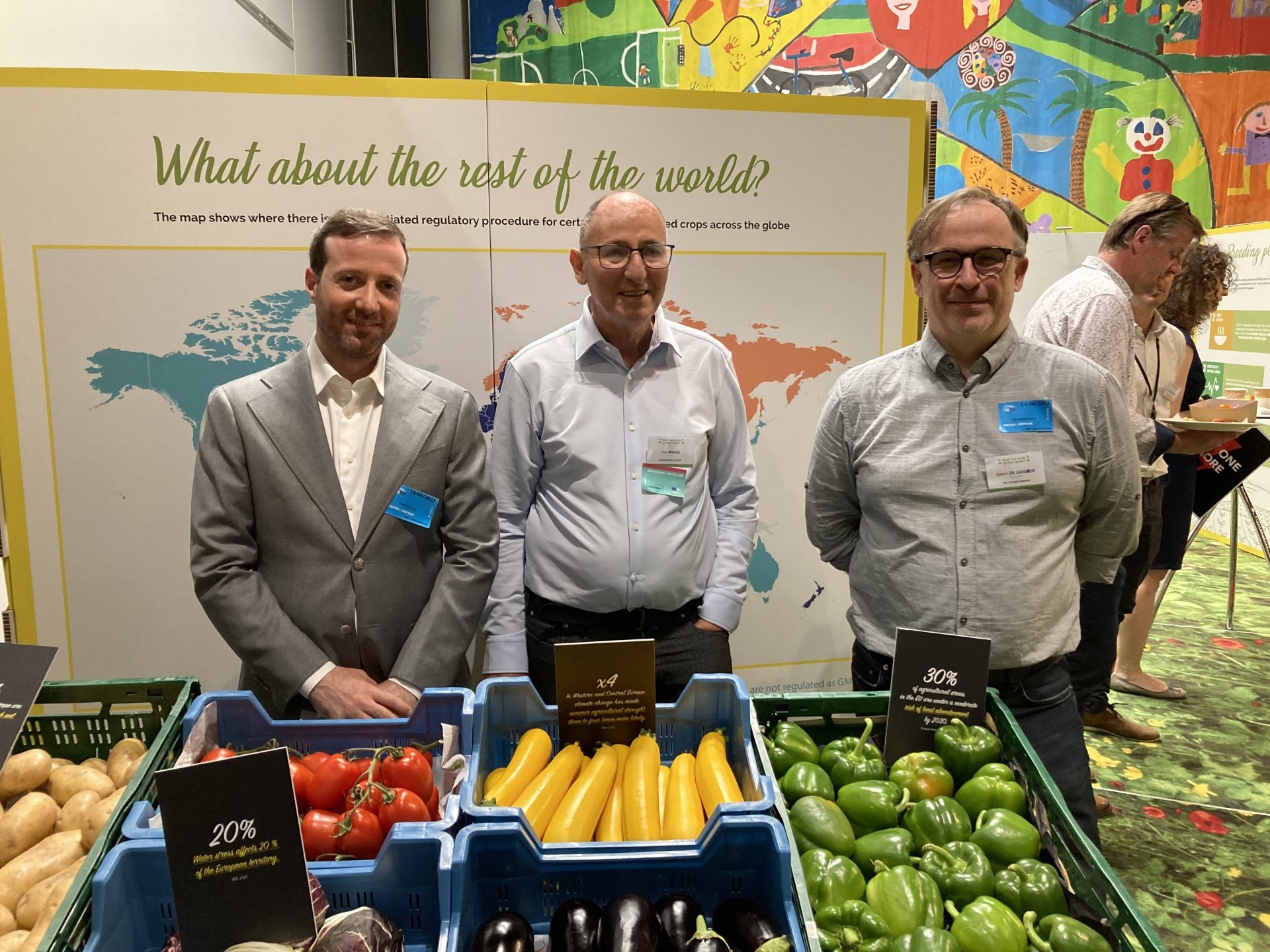In view of the upcoming legislative proposals, Re-Imagine Europa and the European Sustainable Agriculture through Genome Editing (EU-SAGE) organized the Exhibition “What’s new in the Farmers’ Market?”, in the European Parliament in Strasbourg.
The European Commission set out an ambitious agenda to modernize European agriculture and develop a more sustainable and resilient model for Europe that could become a reference globally, with the European Green Deal and the Farm to Fork Strategy. However, the present polarization in the debate surrounding agriculture, food systems, and innovation is blocking farmers from getting the much-needed solutions to tackle the challenges they face. “We need to overcome multiple challenges, from workforce shortages to soil erosion, droughts, and other consequences of climate change and global warming. We need comprehensive solutions for these extremely complex challenges.”, reflected a group of farmers from across Europe, that attended the exhibit ‘What’s new in the Farmer’s Market’. “It is increasingly hard to produce nowadays, either because of very complex bureaucratic processes, the instability of the markets and increasing difficulties in dealing with pests and other diseases. We need to be heard, to participate in the debates and we need actions”.
This is in fact a strategic year, since the European Commission is scheduled to deliver the New Genomic Techniques legislative proposal, as well as the Plant Reproductive Material and Sustainable Food Systems Framework. With this in mind, Re-Imagine Europa and the European Sustainable Agriculture through Genome Editing (EU-SAGE) organized an exhibition, at the European Parliament in Strasbourg, from June 13th to June 15th, entitled “What New in the Farmers’ Market? The role of plant breeding in helping farmers build a sustainable, diverse, and resilient European food system”.
The Exhibition was hosted by Veronika Vrecionová MEP (ECR) and co-hosted by Franc Bogovič MEP (EPP), Herbert Dorfmann MEP (EPP), Peter Jahr MEP (EPP) and Juozas Olekas MEP (S&D). The pluralistic representation of political parties hosting this exhibit follows the strict non-partisan policy that drives all the work of Re-Imagine Europa. At the launch event of the Exhibition, Veronika Vrecionová highlighted the necessity of creating a new dynamic for agriculture, more resilient to climate change and to global competition.
This feeling was shared by the Deputy Director-General in DG Health and Food Safety at the European Commission, Claire Bury. In a pre-recorded message, Bury also mentioned the importance of farmers in the construction of a sustainable agricultural system and European food system. “Farmers play a key role in the transition. They are the solution. We need to help them to produce sustainably and remain competitive”. You can watch the intervention here.
During the exhibition, farmers from across Europe and young scientists shared their first-hand testimonies and raised awareness of the diverse challenges that European agriculture faces nowadays. It is necessary to depolarize the debate around innovation in agriculture, find common ground and build bridges to start a meaningful debate.
As mentioned by a young scientist specialising in agriculture and plant biotechnology at the exhibition, “we all have the same goal, to build a truly sustainable food system and to provide the best solutions to farmers’ challenges, taking into consideration the protection of the environment and the planet. It is not an “us versus them” situation. We do not advocate that new technologies are the only solution, but they can be part of the solutions. We need to come together and create local solutions based on the necessities of each farmer, region or country.”
At Re-Imagine Europa, we believe it is necessary to shift the polarised narrative that defends an “one ideal model” and focus on building and developing a toolbox of solutions, from organic farming to “nature-inspired” NGTs, financial instruments, sustainable soil and integrated water management. A toolbox for farmers with multiple solutions that will take into consideration the specificities and necessities of each case and enable farmers with conscientious choices and sustainable solutions for their diverse challenges.
